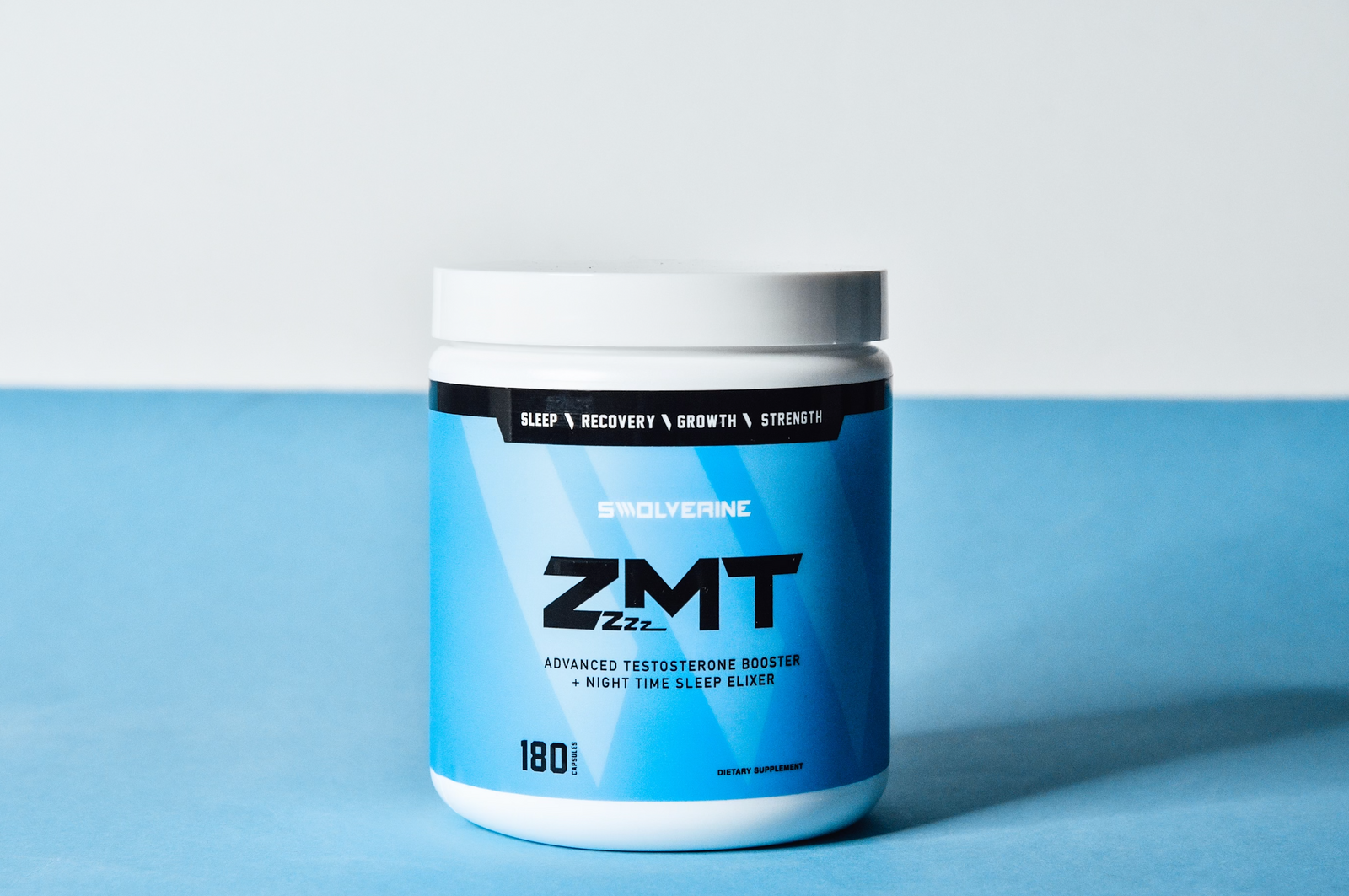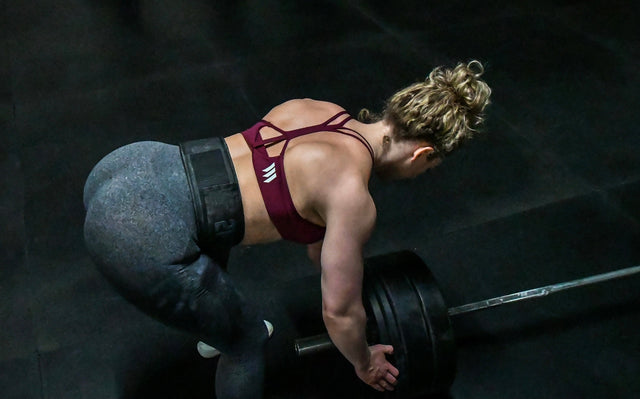One of the easiest ways to boost natural testosterone production is by correcting for underlying vitamin and mineral deficiencies. Both food and supplementation, such as a once-daily multivitamin can provide the vital micronutrients you need to boost testosterone production and improve overall vitality, libido, strength, and body composition.
Testosterone deficiency affects 10-40% of the world population and is known to increase with age, with an exponential rise in men and women aged 45-50. Optimizing your micronutrient intake by eating more fruits and vegetables and supplementation can help you boost natural testosterone production and correct vitamin and mineral deficiencies.
Achieving Optimal Testosterone Levels With Vitamins
Why Micronutrients Matter for Testosterone Optimization
While this guide focuses on micronutrients and vitamins, it’s important to note that no supplement or vitamin can replace a balanced diet. Macronutrients — protein, carbohydrates, and fats — remain essential for hormonal balance. However, in today's modern diets, many individuals still experience vitamin and mineral deficiencies that can negatively impact testosterone production. This guide highlights key vitamins and minerals that play a crucial role in supporting natural testosterone levels.
What Is Testosterone and How Micronutrients Help
Understanding the Role of Testosterone in the Body
Testosterone is the primary androgenic hormone in the human body, playing a central role in regulating muscle mass, bone density, libido, energy levels, mood, and overall vitality. While it is most commonly associated with male health, testosterone is also essential in women in smaller amounts.
Produced primarily in the testes in men and the ovaries and adrenal glands in women, testosterone levels peak in early adulthood and begin to decline gradually with age—typically by about 1% per year after the age of 30. Low testosterone levels can lead to symptoms like:
-
Decreased muscle mass and strength
-
Fat gain, particularly around the midsection
-
Fatigue and low energy
-
Mood swings and depression
-
Reduced sex drive and performance
📖 Source: Mayo Clinic Staff, 2022
How Micronutrients Support Natural Testosterone Production
Micronutrients—including vitamins, minerals, and trace elements—play a vital role in the synthesis, regulation, and optimization of testosterone. These compounds support hormonal health by:
-
Acting as co-factors in enzymatic reactions needed for testosterone production
-
Regulating cholesterol metabolism, which is the raw material for steroid hormones
-
Assisting in antioxidant defense, protecting the testes from oxidative damage
-
Supporting the HPA axis (hypothalamic-pituitary-adrenal axis), which governs hormone release
-
Enhancing liver detoxification, reducing estrogenic overload that can suppress testosterone
Many people today unknowingly suffer from micronutrient deficiencies due to highly processed diets, poor soil quality, stress, and lifestyle factors. These deficiencies can directly impair testosterone levels, hormonal balance, and metabolic health.
That’s why optimizing micronutrient intake through a combination of whole food sources and strategic supplementation can help you naturally increase testosterone levels—without needing synthetic hormone therapies.
💡 Think of micronutrients as the "spark plugs" for hormone production. Without them, the engine (your endocrine system) simply can't fire at full power.
1. Vitamin A and Testosterone Production
How Vitamin A Boosts Androgen Synthesis
Vitamin A, particularly in its active form retinoic acid, plays a vital role in androgen production. Research has shown that a deficiency in Vitamin A is linked to reduced serum testosterone levels. It also impairs the body’s ability to metabolize healthy fats—critical for testosterone synthesis.
✅ Key Insight: Adequate Vitamin A is essential for optimal testosterone and fat metabolism.
Best Food Sources of Vitamin A:
-
Sweet Potatoes
-
Carrots
-
Dark Leafy Greens
-
Salmon
-
Cod Liver Oil
📖 Source: Blomhoff et al., 1991, The Journal of Nutrition
2. B-Vitamins and Testosterone Production
B-Complex: The Hormonal Co-Enzyme Powerhouse
B-Vitamins are water-soluble and serve as co-enzymes in numerous anabolic and catabolic reactions. Vitamins B2, B3, and B6 in particular support testosterone regulation:
-
Vitamin B2 (Riboflavin) helps convert testosterone to DHT (a more potent androgen).
-
Vitamin B3 (Niacin) boosts human growth hormone and anabolic activity.
-
Vitamin B6 helps suppress estrogen synthesis, maintaining androgen dominance.
✅ Key Insight: A complete B-complex supports hormonal balance and metabolic efficiency.
Best Food Sources of B-Vitamins:
-
Pork
-
Nuts
-
Dark Leafy Greens
-
Lentils
-
Seafood
-
Root Vegetables
📖 Source: Kennedy, 2016, Nutrients
3. Vitamin D and Testosterone Production
The Sunshine Hormone That Fuels Testosterone
Despite its name, Vitamin D is a steroid hormone, not a vitamin. It regulates over 1,000 bodily functions, including testosterone synthesis. A deficiency in Vitamin D has been consistently linked to lower testosterone levels.
✅ Supplementing with Vitamin D has been shown to increase testosterone levels by up to 25%.
Best Food Sources of Vitamin D:
-
Mushrooms
-
Fatty Fish
-
Milk
-
Eggs
-
Oysters
📖 Source: Pilz et al., 2011, Hormone and Metabolic Research
4. Magnesium and Testosterone Production
Magnesium: The Bioavailability Booster
Magnesium regulates over 300 enzymatic reactions and is essential for ATP production, muscle contraction, and hormonal health. It also enhances testosterone bioavailability by increasing free testosterone.
✅ Research suggests combining 1g of magnesium with exercise can increase testosterone by 24%.
Best Food Sources of Magnesium:
-
Dark Chocolate & Cocoa
-
Spinach
-
Beef
📖 Source: Cinar et al., 2011, Biological Trace Element Research
5. Zinc and Testosterone Production
Zinc: The Master Mineral for Testosterone
Zinc is involved in hundreds of biochemical pathways, including protein synthesis, immune function, and testosterone production. It acts as a co-factor for enzymes critical in testosterone metabolism.
✅ Zinc supplementation has been shown to significantly increase total and free testosterone levels in athletes and sedentary men alike.
Best Food Sources of Zinc:
-
Raw Cocoa
-
Beef
-
Lamb
-
Eggs
-
Liver
📖 *Sources:
6. Boron and Testosterone Production
Boron: The Trace Element That Doubles T Levels
Boron influences the metabolism of testosterone, estrogen, and vitamin D, and supports magnesium absorption—making it highly relevant for hormonal health.
✅ Studies show Boron can double free testosterone levels and improve the ratio of androgens to estrogens.
Best Food Sources of Boron:
-
Raisins
-
Brazil Nuts
-
Avocados
-
Prunes
-
Dried Apricots
📖 Source: Naghii et al., 2011, Journal of Trace Elements in Medicine and Biology
7. Calcium and Testosterone Production
Calcium + Training = More Testosterone
Calcium isn’t just for bone health—it plays a key role in muscle contraction and hormonal regulation. A study showed that calcium supplementation combined with resistance training increased testosterone significantly more than training alone.
Best Food Sources of Calcium:
-
Milk
-
Cheese
-
Yogurt
-
Eggs
-
Leafy Greens
📖 Source: Cinar et al., 2009, Biological Trace Element Research
8. Vitamin K2 and Testosterone Production
The Underrated Hormone-Like Vitamin
Vitamin K2 acts similarly to a hormone, regulating cellular signaling and testosterone production. While human trials are limited, animal studies have shown promising results.
✅ In one Japanese rat study, Vitamin K2 increased free testosterone by 70% over 5 weeks.
Best Food Sources of Vitamin K2:
-
Cheese
-
Liver
-
Butter
-
Milk
-
Eggs
📖 Source: Ito et al., 2011, Journal of Nutritional Science and Vitaminology
9. DIM (Diindolylmethane) and Testosterone Regulation
Supporting Estrogen Metabolism for Optimal Androgen Balance
DIM, or Diindolylmethane, is a compound derived from the digestion of indole-3-carbinol, found in cruciferous vegetables like broccoli and cauliflower. While DIM doesn’t directly boost testosterone, it helps maintain an ideal estrogen-to-testosterone ratio by promoting the healthy metabolism of estrogen into less active forms. This supports a more androgenic internal environment, especially in men with estrogen dominance or testosterone suppression due to high estradiol levels.
✅ Research has shown DIM can help:
-
Reduce the conversion of testosterone to estrogen
-
Support liver detoxification pathways
-
Improve body composition and hormonal balance
Best Food Sources of DIM:
-
Broccoli
-
Cauliflower
-
Kale
-
Brussels Sprouts
10. DHEA (Dehydroepiandrosterone) and Testosterone Production
The Precursor Hormone That Fuels Androgen Synthesis
DHEA is a naturally occurring hormone produced by the adrenal glands and serves as a precursor to both testosterone and estrogen. Levels of DHEA peak in early adulthood and gradually decline with age—often correlating with lower testosterone in older men. Supplementing with DHEA has been shown to restore serum testosterone in those who are deficient or aging.
✅ Benefits of DHEA:
-
Increases free testosterone in older men and women
-
Supports energy, libido, and lean mass
-
May improve insulin sensitivity and mood
⚠️ While DHEA is available over the counter in some countries, it’s important to monitor levels closely under medical supervision, especially for women, due to its androgenic potential.
Best Natural Sources:
While DHEA isn’t found directly in food, precursors to its production are supported by a high-protein, healthy fat diet, along with regular resistance training.
📖 Source: Baulieu, E.E. (1996). "Dehydroepiandrosterone (DHEA): A fountain of youth?" J Clin Endocrinol Metab
Final Thoughts: The Natural Way to Boost Testosterone
Supporting testosterone production naturally requires a strategic balance of micronutrients, training, and lifestyle. Vitamins and minerals like Vitamin D, Zinc, Magnesium, and B-Vitamins act as critical co-factors for hormonal health and performance. Combined with a nutrient-dense diet and resistance training, these micronutrients can help you reach and maintain optimal testosterone levels.
🧠 Reminder: Always consult with a healthcare provider before starting any supplement regimen, especially for hormone-related concerns.
If you have low testosterone levels, incorporating more micronutrient-rich foods vitamins, and supplementation will help produce more free level testosterone and increase production. Vitamins and minerals such as Boron, Vitamin A, B-Vitamins, Vitamin D, Zinc, and Magnesium will all help boost natural testosterone production to help you improve vitality, increase strength, maintain lean muscle mass, and improve libido.
Consider getting a blood panel done first and consult your physician, to identify what micronutrients you need for optimal hormonal balance. Due to modern-day farming practices, in addition to western diet statistics, it is recommended to supplement your diet with a multivitamin to bridge any dietary gaps with essential micronutrients. Furthermore, if you’re over the age of 30, additional supplementation of Zinc and Magnesium will help improve testosterone levels and improve your overall quality of life and boost testosterone.













